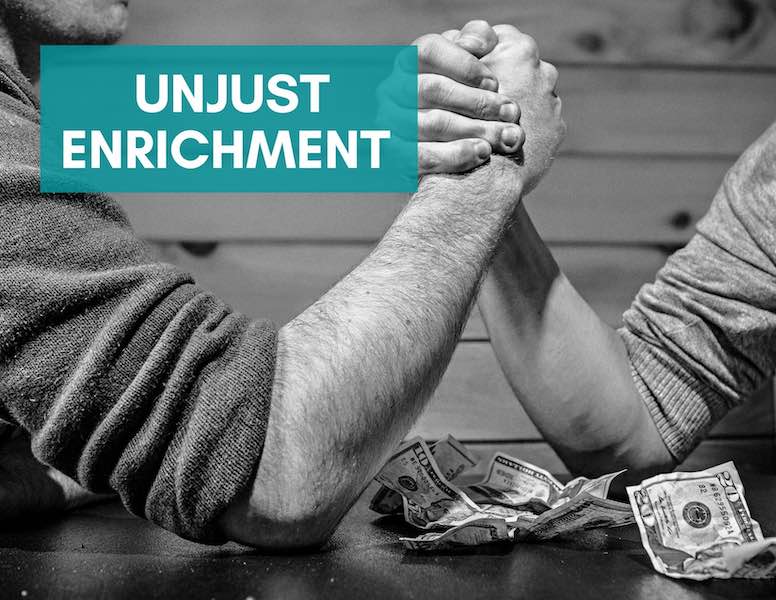In this week’s article we discuss the claim of unjustified enrichment.
A claim for unjust enrichment is used to describe a situation wherein one party benefits at the other party’s expense, in circumstances where the law considers to be unjust. Thus, a claim for unjust enrichment may be an appropriate basis of claim in a variety of scenarios, such as where money or property has been paid or transferred away by mistake.
Examples of unjust enrichment are where a party has received something either accidentally or in error, but which the other party would not have earned, and ethically should not be kept. An example is an instance where one person transfers electronic funds into the incorrect bank account and the enriched person then receives and uses the money. This commonly occurs in situations involving a breach of contract where one party begins providing goods or services with the expectation of being paid. Unjust enrichment is usually considered to be unfair, and those who are declared unjustly enriched are required by law to pay the other party restitution. In the Zimbabwean law, the requirements for an action of unjust enrichment were set out in the case of Gamanje (Pvt) Ltd v City of Bulawayo SC 94/04 which states that the requirements for an action for unjust enrichment are:
1. that the defendant has been enriched by the receipt of a benefit;
2. that he has been so enriched at the expense of the Plaintiff;
3. that the enrichment is unjustified (in the sense that it would be unjust to allow the
defendant to retain the benefit);
4. that the enrichment must not come within the scope of one of the classical
enrichment actions; and
5. there must be no positive rule of law which refused an action to the impoverished person.
See Industrial Equity v Walker 1996 1 ZLR 269 AT P 300 and Wille’s Principles of South
African Law 8th edition at pp 633-5.
To the same The South African Law of Unjustified Enrichment Juta 2012 at p 24 writes that:
“To succeed with a claim based on unjustified enrichment, the Plaintiff
must meet four general requirements, or, as it is sometimes said, four
general elements of enrichment liability have to be present. First, the
defendant must be enriched; secondly, the plaintiff must be impoverished;
thirdly, the defendant’s enrichment must be at the plaintiff’s expense and
finally, the defendant’s enrichment must be unjustified, which means that it
must be without legal ground (sine causa).”
In conclusion, the claim of unjustified enrichment is a self-correction remedy which promotes fairness in unjust scenarios when the law does not provide any remedy. The main purpose of the claim is to balance the interests of individuals and provide restitution where necessary.
However, all the requirements must be satisfied to succeed in this claim.
The information and opinions expressed above are for general information only. They
are not intended to constitute legal or other professional advice.

